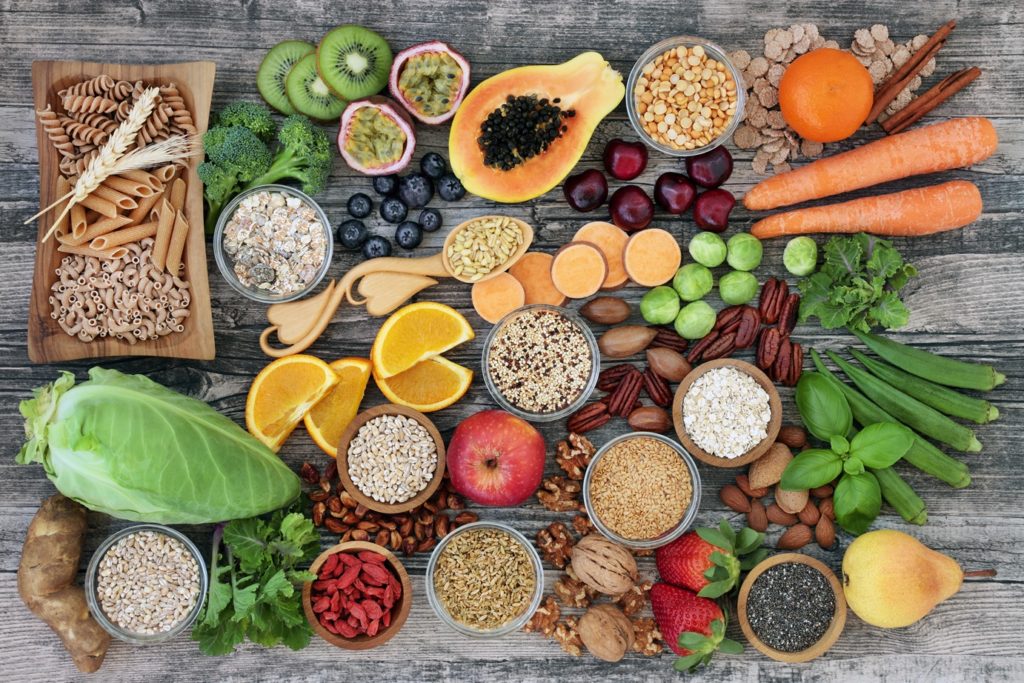Planetary diet: lose weight, eat healthy and still save the world
A Planet is on a diet
A Commission made up of 30 of the world’s leading scientists, developed recently a concept of nutrition, with the every lose weight and eat healthy can. This is the promise of many diets, the emphasis here is however on each. Because the diet plan is to feed about 10 billion people sustainably and healthily, without destroying our planet. So the dining plan, if we take into account not only our health but also the earth.
In the year 2050 is estimated 10 billion people will live on the earth. The current methods for food directed to your limits and leave deep scars on our planet. The EAT-Lancet Commission on nutrition, the Planet and health developed a nutrition concept that everyone can eat healthy food without destroying our planet. The results of the research were recently presented in the journal “The Lancet”.

What’s behind the Planetary diet?
The Commission carried out the first comprehensive scientific Review, to clarify what constitutes a healthy diet, which is based on a sustainable food system and what measures can support the conversion to this System, and accelerate. From these Considerations, the so-called Planetary diet is created.
Nutrition is more than food
According to the Commission, this diet combines the latest knowledge in the field of healthy nutrition and at the same time meets the requirements of sustainability, which we have to be mandatory. “A healthy diet should be to optimize health and, in General, the state of complete physical, mental and social well-being, promoting not only the Absence of diseases to be defined,” write the researchers in their summary report.
We eat too much meat, sugar, fat and refined grain
“Healthy food has an optimal calorie intake and mainly consists of a variety of plant-based foods,” say the nutrition researchers. Only small quantities should come from animal origin. Similarly, the proportions of unsaturated fats, refined grains and sugar should be kept to a minimum. Also highly processed meals should largely be on the table.
So a healthy and sustainable diet plan
The following table shows how the Commission’s opinion, an optimal and sustainable nutrition. The Overview refers to a daily calorie intake of 2500 calories, an average fuel consumption in middle-aged men. The personal calorie consumption may need to be adjusted.
- Full-grain: (e.g. from rice or wheat): 232 grams per day; equals 811 calories
- Starchy vegetables (e.g. potatoes): 50 grams per day; equals 39 calories
- Vegetables (all varieties): 300 grams per day; corresponds to an average of 78 calories
- Fruit (all varieties): 200 grams per day; corresponds to an average of 126 calories
- Dairy products (e.g. yogurt or milk): 250 grams per day; equals 153 calories
- Red meat: 14 grams per day (about two Steaks in the month), equivalent to 30 calories
- Poultry: 29 grams (about one Serving per week)equals 62 calories
- Eggs: 13 grams per day (every 4 to 5 days and an Egg); corresponds to 19 calories
- Fish: 28 grams per day (one to two servings per week); 40 calories
- Legumes: 75 grams per day; corresponds to an average of 284 calories
- Nuts: 50 grams per day; corresponds to an average of 291 calories
- Added to unsaturated fats: 40 grams per day, equivalent to 354 calories
- Added saturated fat: 11.8 grams per day, equivalent to 96 calories
- Added sugars: 31 grams per day, equivalent to 120 calories
(vb)



